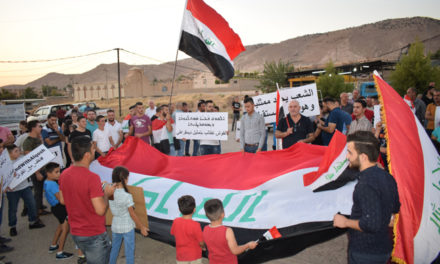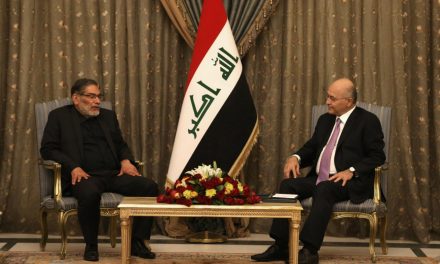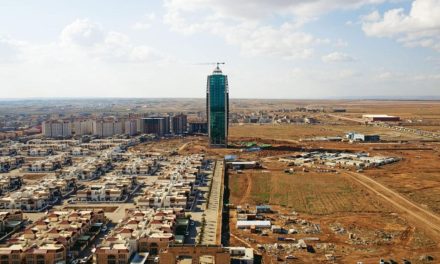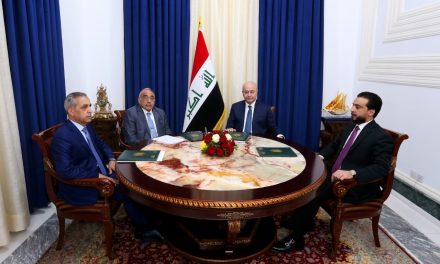Iraq has long suffered from a lack of investment due to the burden of occupation, political instability, corruption, and the fight against terrorism. Even Basra, which is the chief contributor to the federal budget was deprived of basic investments. With the election of Prime Minister Muhammed al-Sudani, Iraq has the opportunity to change that. The governmental programme stresses the implementation of timely strategic projects, such as the Faw Grand Port, Dry Canal (Iraqi Silk Way), and the connection of the Faw Grand Port to the Umm Qasr Port via immersed tunnels. If implemented, these projects will assist in the development of all Iraq and not just the south.
The first freighter to dock in the Faw Grand Port is expected in 2025 and it will be fully operational by 2038. The Dry Canal is expected to be fully operational in 2029. It is calculated that this new trade route will be an alternative to the Red Sea – Suez Canal. In addition to reducing the travel time by 20-25 days, the Faw Grand Port will be able to host larger freighters due to its draft size being than the Suez Canal.
As non-oil exports make up only three to four percent of the Iraqi budget, diversification of sources of revenue can be achieved by projects making use of Iraq’s geographic location. These interconnected projects aim to be complementary. The Faw Grand Port will allow the porting of strategic and large freighters, and Khor al-Zubair immersed tunnel will enable transportation by eliminating a detour between the Faw Grand Port and the Umm Qasr Port from Zubair Bridge, which is located in the southern part of Basra. The Dry Canal will create the land corridor with a highway and railway to the Turkish border. This will enable transportation of goods through the existing ports and the railway infrastructure in Turkey.
Also depending on the General Company for Ports of Iraq, by the year 2038 with the full utilization of the Grand Faw Port and Dry Canal, Iraq will be benefiting from a direct revenue of more than four billion US dollars without taking the indirect revenues into account. With the implementation of integrated industrial zones and a shipping airport, this figure may become higher. Also, it can be said that the project’s span may also cover a Syrian corridor to the Mediterranean Sea, which can multiply the project’s estimated revenues.
However, there are always major challenges alongside advantages for Iraq. Apart from the fact that Iraq will become a transportation hub, there is a threat of regional competition with Iraq’s gulf neighbours. In this regard, the agreement reached with Kuwait about the Mubarak Grand Port may have soothed Iraq’s southern neighbour, however, aspirations of other gulf states may cause new disagreements in the region, since the emergence of larger Iraqi ports may nullify or diminish the significance of the other states’ ports. Therefore, the implementation of dissuasive policies can be expected from said states.
And within the country, there can be new or re-emerging obstacles toward the timely implementation of the projects and the utilization of the completed parts in the future. Accordingly, the depreciation of the Iraqi dinar towards US dollars is a big challenge ahead since Iraq is heavily dependent on its imports. On top of this, a possible fall in oil prices due to the decreasing production rate in China due to new waves of the Covid-19 pandemic may force Iraq to stand on its weak leg because of its dependence on oil exports for income. Apart from that, the fragile security environment poses a threat to the continuity of utilization of the Dry Canal, since it will be a corridor passing from the south to the northern parts of the country. Therefore, any security problem in any area within the scope of the corridor may cause the corridor to come to a complete stop. But on the contrary, with the successful completion of the projects, regional and global partners will have to regard this as a positive-sum game for their logistical and economical benefit, which will push them to support the preservation of Iraq’s security and stability.
Iraq has suffered from lack of investment that would enable the country to diversify its economy. Many projects meant to diversify the economy have failed due to corruption. However, holding corrupt officials accountable, like the sentencing of Shakir al-Zamili, former head of Baghdad’s Investment Commission, to four years in prison with other ongoing court cases for other alleged wrong-doings, suggests that Iraq’s direction can change. Iraq is willing to continue the strategic investments alongside growing the public sector with new jobs. In this regard, the Faw Grand Port project is very crucial for the country for the sake of diversifying its revenue streams. It will, however, face both domestic and regional challenges.

Feyzullah Tuna Aygün
Feyzullah Tuna Aygün graduated from Bahçeşehir University. He is currently the Iraq Studies Expert at the Center for Middle Eastern Studies (ORSAM) in Ankara. Aygün carried out field studies in 13 of Iraq’s 18 governorates and followed the 2018 and 2021 elections as an international observer. His opinions and interviews are published in both Turkish and international media outlets and journals.










